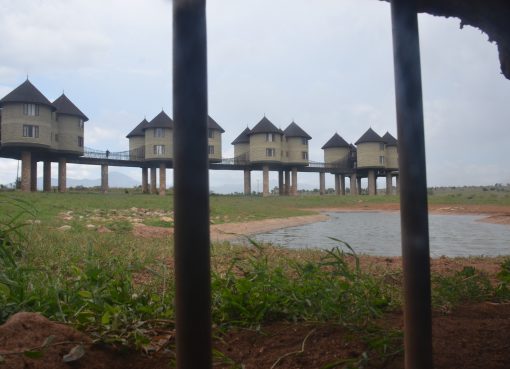The Energy Act 2019 signed into law by the President in March this year provides for an integrated national energy plan that takes into account viable energy supply options.
This will ensure delivery of reliable energy with little cost and guided by appropriate technology.
The new law will also require consultations at both national and county governments with players in the industry to develop and review the energy plans.
Speaking during a stakeholders’ public forum meeting to discuss the new development, Timothy Gakuo, the Chief Economist, Ministry of Energy said the new law has unbundled the sector, providing clear roles and mandate for the various players to fulfill their obligation.
“There is a proper provision for integration of County energy plans into the national energy plan, providing for synergies and complementarity.” Gakuo said.
The economist further noted that the potential that the new law brings to the fore and looking at policy historical
evolution of the sector, is the overriding objective in deliberating enabling reforms in the sector.
This, he noted is expected to lead to provision of clean, accessible, affordable and available energy for all domestic
needs and commercial use as it is expected to address the real cost of energy through the chain of generation,
transmission, distribution and retailing.
Gakuo however said it will be imperative, through diverse engagement, to address energy cost throughout the energy chain from generation to transmission distribution and ultimately the real detail systems while being alive to the fact that Kenya deserves low cost of power.
“When we look at it today and especially the roadmap towards enactment of the law, it has taken a lot of participation from stakeholders and the private sector even as it continues to undergo reforms since mid-1990s and all of us can attest to the milestone achievement whether at family level or community level that a lot has changed”, Gakuo said.
George Aluru, Vice Chair for Kenya Private Sector Alliance (KEPSA) Energy and Extractives board said provision of clean renewable energy is now formally anchored in the law and this portends new opportunities especially for the private sector players.
“Now we have a direction to have competitions at all levels of the energy sector, in generation, now in transmission
licensees, distribution licensees and retail licensees. As a private sector this is an opportunity for us once the
regulations to actually do business in this sector and complement whatever government is doing”, he said.
Aluru said 70 percent of Kenyans’ energy onsumption is burnt on three stones or ‘jiko’ and only 30 percent use
electricity and petroleum and added it is ironical that policymakers tend to put a lot of emphasis on electricity and
petroleum neglecting what ordinary Kenyans use in terms of energy.
“Maybe within the Act, it’s a bit more about feedlots and more sustainable use of bio mass, we could however put more effort on that and this is an opportunity to step in and bring in more innovation and even switch to LPG to cater for bigger bulk of the population and the kind of energy they use”, he said.
Aluru said KEPSA would have wanted things like auction to be introduced, shift from feeding tariffs and look into more competitive bidding so that they can be sensitive to the hue and cry by the population about reducing the cost of electricity.
The new roles of the County Governments in terms of Energy efficiency and regulations in terms of how buildings will be built in certain climatic conditions that are relevant to their counties, Aluru said, is a positive in the Energy
Act because it localizes some standards of building relating to energy.
Engineer Collins Juma, CEO of Nuclear Power and Energy Agency (NUPEA) saidthe mandate they have in the Act on research for other energy technologies cannot be done by the corporation alone without the involvement of the universities.
“ Dissemination of energy related technology as a country we will need to go beyond the three stones and if we are
talking about the bio mass because we don’t have cheap power that we can use for cooking or for lighting , we need to go beyond there and see what we can use to drive our industry”, he said
Juma said that if Kenya wants to light all industries, houses, play music , TV and run fridges , then renewable is a good idea and we don’t need to build a coal power plant in Lamu or look for nuclear energy because the quality of sun and wind that this country receives can be able to do all that.
Meanwhile, Eng. Benson Mwakima , the Director of Renewable Energy said they are in the final process of setting up the mechanisms for establishing an energy auction system that will allow potential investors to bid for the development of various power projects across.
The new auction system is expected to replace the current system where investors come up with power project, signs power purchase agreement with Kenya Power and then implement the project.
This provision is contained in the new Energy Act 2019 accented by the President recently with the new law expected to completely change the landscape of the country’s energy sector.
By Wangari Ndirangu



